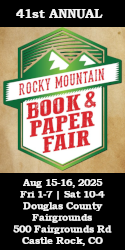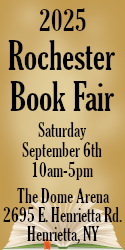Reflections on the 2020 Election (Part 3)
The election of 2016 was in many ways about class struggle, with shifting alliances and a strange new cast of players. Wealth and economic power, built largely through the skills and hard work of the American working and middle class, had became increasingly concentrated in the hands of the super rich – CEOs of major corporations, international banks, money managers, hedge fund operators, “non-proft” foundations and the entertainment industry. For the purpose of this discussion, I would define the entertainment industry as including movies, network news, televised spectator sports, and much of reality television – 21st century purveyors of bread and circuses or opioids for the masses. Orchestrated attempts to divert people from thinking about the reality of their individual lives and that of the nation as a whole, is often the sign of a civilization in decline.
In the 2016 election, many people based their vote less on the important issues, but more on a choice between two candidates who were equally unlikeable but for different reasons. The two issues Mr. Trump emphasized repeatedly were (1) systemic trade imbalances that harmed the American working class and (2) the unresolved problem of illegal immigration that prominent politicians of both parties, oddly enough, had spoken about critically on numerous occasions for many years. Those issues resonated not only with the working class but with people from all different backgrounds and levels of education. But because of Mr. Trump's bombastic and narcissistic personality and tendency to use his short stack of adjectives (and adverbs) over and over and over, what should have been discussed and debated rationally ended up becoming a war of perception and aesthetics.
Before leaving office President Eisenhower famously warned the nation about the dangers of the military/industrial complex – a warning that was ignored from the beginning and only succeeded in stimulating the growth of a massive new lobbying industry. Trump was an unmanageable outsider who recognized other problems and although he didn't articulate it very well, tried to warn the nation about the danger of an alliance between partisan political power and the news business. Almost any observant person knows that for many years journalists have tended to curate the news in order to advance a narrative that reinforces their own political agenda and that of the people they work for. Most of the time these efforts are painfully obvious but even so it is unclear how many people are intelligent enough to filter out agenda-driven spin from what is reported. While on the subject of unreliable news, a few years ago someone whose name escapes me said (and I paraphrase) “the most unreliable news source is the one you follow consistently”.
But in the case of Trump it got really personal very fast when he began speaking about “fake news”. From that point on, even if Trump had been a stopped clock, most network news people not only would not have reported that at least he was correct and on time twice a day, but would have “debunked” or “fact-checked” anyone who suggested that he was. Even today the Trump adminstration's quick response in deploying massive resources to develop a Corona virus vaccine is rarely mentioned.
So in many ways the people and institutions who lost the most as a result of the 2020 election have been the legacy network news organizations and their reporters who have lost credibility and much of their viewership according to Nielsen and other agencies who monitor such things. At the same time, some of the rising stars in modern journalism include John Solomon (Just the News), Glenn Greenwald (Substack), Sharyl Attkisson (Full Measure) and a few others who offer more in-depth reporting than what the public has been used to of late. Their opinions, when obviously and honestly expressed, suggest a “truth-in-labeling” approach which alerts viewers so they are able to exercise their own critical thinking skills. In many ways the new journalism is a throwback to the days of informed pamphleteers such as Thomas Paine, William Cobbett (aka “Peter Porcupine”), William Lloyd Garrison and others. You knew where they stood on matters of public policy.
One must regret that in the critically important business of domestic and international affairs, the past four years has seen a dramatic rise in über partisanship and a shameful cultivation of the politics of personal destruction, most of it directed towards one man. And lost in all of this has been the willingness to engage in civil discourse. Do we take stands on issues based on blind party affiliation or do we choose a political party that more closely reflects our values? There is a lot to consider... (to be continued)


























